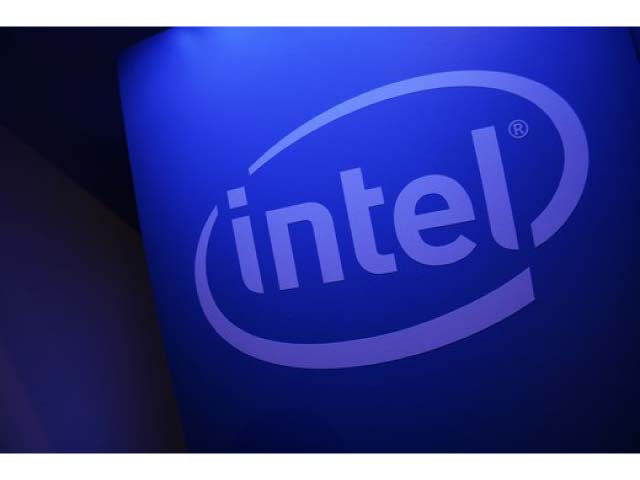Intel is a company specialized in the technology sector and more particularly in that of semi-conductors. Its main competitors are Samsung, Apple or Qualcomm, non-exhaustive list.
Today, Intel is among the world's leading figures in this field.
In 2023, the group records a revenue of $63 billion, a figure that has somewhat decreased over the course of one year due to various factors including political and economic ones. Intel possesses approximately 120,000 employees worldwide, and ensures its presence in several strategic countries.
In 2023, the sector as a whole experienced a significant decline in demand; figures are now sharply increasing because demand seems to be rising again. However, the group still spends several billion dollars on research and development, from $13 to $18 billion per year. Research remains one of the company's main strategic forces, which enables it to gain productivity, performance, and above all competitiveness.
- Artificial intelligence in Healthcare Industry - A.I in Medical Technology : Medical Imaging
- Intel Strategic Analysis
Political environment
Intel is a company present worldwide that exports its products to many countries, which requires developing good commercial relations abroad and therefore having a stable political climate. The group, in its position, is affected by the trade conflicts existing between China and the United States. In 2024, China still represents an extremely important market for Intel, but the US imposes certain restrictions that negatively impact the company's results.
In addition, the group has some help in promoting its projects, notably the Chips Act, which aims to encourage local production of semi-conductors.
Finally, note that political laws and regulations are becoming increasingly strict, especially in the field of cybersecurity.
Economic environment
Political and economic domains are very closely linked. Of course, Intel is impacted by demand strength, which has increased over recent months. New technologies never cease to develop and evolve, and demand becomes increasingly demanding, whether from professionals or individuals. International demand for semiconductors moves a lot; it's tied to innovations, trends, and the needs of each one.
Intel is present worldwide, and therefore the company is very exposed to exchange rate differences; this impacts the final price paid by the client. In some countries, we also note that raw materials have increased dramatically, so Intel possibly has profitability problems.
Finally attention to competition, with groups like Samsung or Apple that develops its M1, M2, and even M3 chips for computers and tablets.
Sociological environment
Consumers are always very fond of new technologies and demands are very high, especially concerning smartphones, tablets, or computers. There have been real changes in consumption habits, particularly since the appearance of Covid-19, where consumers and companies equipped themselves for remote work purposes.
Video games and cloud computing also require increasingly powerful processors to improve customer experience and counter an ever more active competition.
We also note that consumers are no longer passive buyers as they may have been a few years ago. They are more engaged; they want to buy quality products made to last long time. Not just for ethical and ecological reasons, an increasing number of consumers and companies do not want to change equipment too often.
Thus, to meet everyone's requirements, Intel makes significant efforts in reducing waste, highlighting more sustainable technologies, with impeccable post-sales service. The group is finally very present on the net as well as social networks, where internet users will be able to follow developments of new releases and where the group can maintain a constant interaction with them, so as to increase their loyalty.
Technological environment
Innovations are what best characterize Intel; semiconductors belong to the hi-tech sector, it is essential to invest a lot of money in developing ultra-powerful processors that can equip business and personal devices. Little by little, technologies evolve, Intel evolves along with them to assert its power on the market and competitiveness. Technological security is also one of the group's priorities.
Ecological environment
Developing more eco-friendly methods and products is one of the company's priorities. Sustainability is a short-term objective that already exists in existing processors. It is worth noting that the group is impacted by an increasingly strict series of environmental protection standards.
Legal environment
At a legal level, Intel is impacted by regulations that can change depending on countries; therefore, it's essential to respect each rule in force. In the current context where everything is published online, failing one of these rules may negatively impact the company.
Intel must finally conform to labor laws that also change depending on territories as consumers are increasingly attentive to how employees are treated.
Conclusion
Intel is always one of the main global leaders in the field of semiconductor manufacturing and works with major international companies.
Despite everything, the group is affected by a series of factors, political, economic but also sociological, and this all the more so as the world has largely become complex in recent years. Innovations take an important place in company life, as well as ecology, since norms appear to be increasingly strict. Finally, at legal level, laws change too according to countries. To remain competitive, the group must know how to innovate and adapt to new market trends.
Other PESTEL analysis
- PESTEL Analysis - Shein
- Porter's five forces, PESTEL and SWOT analysis - Puma France
- PESTEL Analysis - Japan









